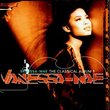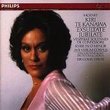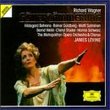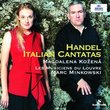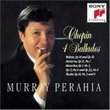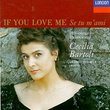| All Artists: Giuseppe Verdi, John Pritchard, Maggio Musicale Fiorentino Orchestra, Angelo Mercuriali, Carlo Bergonzi, Dora Carral, Giovanni Foiani, Joan Sutherland, Mario Frosini, Miti Truccato Pace, Paolo Pedani, Piero de Palma, Robert Merrill, Silvio Maionica, Tereno Meridionale Title: Verdi: La Traviata Members Wishing: 0 Total Copies: 0 Label: Decca Original Release Date: 1/1/2006 Re-Release Date: 10/10/2006 Genre: Classical Style: Opera & Classical Vocal Number of Discs: 2 SwapaCD Credits: 2 UPC: 028947579229 |
Search - Giuseppe Verdi, John Pritchard, Maggio Musicale Fiorentino Orchestra :: Verdi: La Traviata
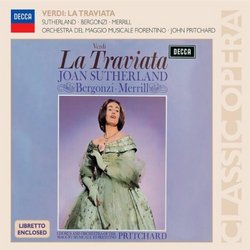 | Giuseppe Verdi, John Pritchard, Maggio Musicale Fiorentino Orchestra Verdi: La Traviata Genre: Classical
|
Larger Image |
CD DetailsSimilarly Requested CDs |
CD ReviewsLa Stupenda delivers an honest and beautiful Traviata. Bubbi | Denmark, Europe | 12/08/2006 (5 out of 5 stars) "Sutherland has been criticized by some for not being a good actress. Her performance on this recording does shame to this critique. Her voice sounds absolutely beautiful, pure and secure. Sutherland's performance is very convincing - the voice communicating feelings from wild joy to deep desperation. Without ever being the least sentimental. Bergonzi and Merril are both on the top of their careers, Bergonzis voice of lyric tenor breathtakingly beautiful. In spite of being recorded in 1962, the sound is amazingly clear and full. With John Pitchard conducting, La Traviata doesn't get better than this." Which Sutherland Traviata to buy? Santa Fe Listener | Santa Fe, NM USA | 02/08/2007 (4 out of 5 stars) "It would be ideal if Sutherland had made great recordings of her two greatest (or at least most popular) roles, Violetta and Norma. But one comes away from her two versions of each opera with distinct pluses and minuses. In the case of this 1962 La Traviata, I'd makr the score card this way:
Violetta: Sutherland is in matchless voice, giving a master class in bel canto singing, but she's inert as a Verdi heroine, lacking in all dimensions of joy, despair, passsion, vulnerability, and hope. She displays one demeanor only, a wan passivity. The irony is that when she remade Traviata at age 54, her vocal acting was considerably energized. Alfredo: I am not a Bergonzi fan, but he certainly matches Sutherland in giving a textbook protrayal here--if you want to study a textbook. I don't. An Alfredo without fire and anguish just lies there on the page. But at least Bergozni doesn't try to outshine his heroine; they are both rather placid. On the remake we get Pavarotti in a signature role, not in best voice and bawling at times, but still a thrill vocally and dramatically. Germon: It's a delight to report that Robert Merrill gives one of the greatest performances of Germont I've ever heard, utterly smooth and even in tone, restrained and experienced in matters of characterixation. He's so fluid in Di Provenza that you cannot believe how difficult that famous aria is for almost every other baritone. By comparison, Sherrill Milnes in the remake is a crude, shouting boor in love with his voice and caring about little else. Conducting: The estimable John Pritchard should have been better than this. Leading the only adequate Maggio Musicale of Florence, he is so timid that you wonder if he was afraid of his star soprano. He yields to her in every respect, and as a result tempos lag and drag, mince and tiptoe. Yet Richard Bonynge's conducting in the remake is far worse, being so wayward that you doubt he can even keep a straight beat. That's as fair an appraisal as I can give. The sonics on both sets are quite good, especially in the new remastering of the 1962 version. Decca struck gold each time, since despite the obvious musical drawbacks, Sutherland was still Sutherland, an adored superstar gifted with perhaps the voice of the century." |

 Track Listings (12) - Disc #1
Track Listings (12) - Disc #1